The private sector is increasingly becoming less “private” (concerned solely with profit) and I think it’s great. According to "Sustainable leadership: Talent requirements for sustainable enterprises," a study on models of sustainable leaderships from Russell Reynolds Associates and research from VU University, social pressure in society is contributing to a shift in the type of leadership of corporations. And sustainable leadership is not only something that can help end poverty, it can also help a company’s bottom line.
Society looks to CEOs for innovation. And yes, society judges the decisions of CEOs as much as NYFW scrutinizes what colors are “in” for fall. But that’s just one of the reasons leaders of big business, or any business really, needs to embrace sustainable leadership.
At this point, you’re probably wondering what the heck sustainable leadership is, so…
Here are ten things you need to know about sustainable leadership and why it’s so important to achieving the Global Goals (especially Global Goal 17: Partnerships and Global Goal 12: Responsible consumption and production.)
1.What is sustainable leadership?
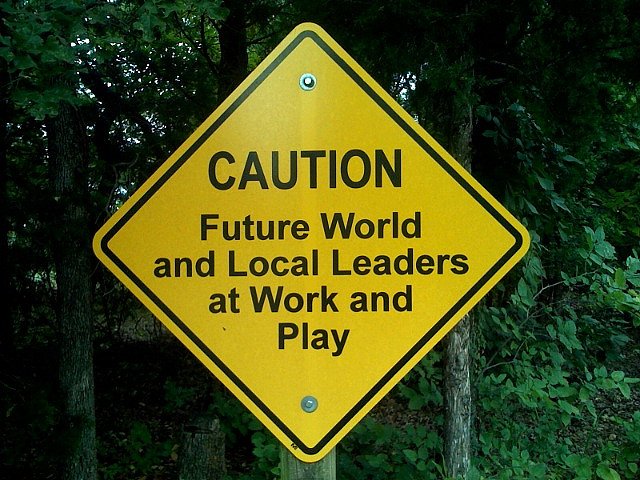
Sustainable leadership is when leaders of businesses (often CEOs) manage companies with environment, society, and long-term sustainable development goals in mind. Oftentimes, it’s referred to as PPP, or the triple bottom line: people, planet, profit. Sustainable leaders take into account stakeholders (anyone connected to a company from employees, consumers, to future generations) not just shareholders (investors who are financially invested in the company).
Companies need leaders who can balance both the pressure of short-term goals and priorities along with long-term goals and incorporate a new set of ideals centered on improving social and environmental issues in the world, according to this study. It’s all about leading in a way that benefits societies and the environment, while maintaining financial performance. But big profit, and financial return is NOT the only thing that matters.
2. Sustainable leadership is key to ending poverty

Global citizens need to help hold corporations accountable and ensure leaders in the private sector adopt practices of sustainable leadership. Without a shift in the mindset of private sector leaders, social and environmental responsibility is hard to enforce. Through sustainable leadership the changes necessary for creating a better world with equality for all are much more likely to occur.
3. The entire world benefits!

Here’s how the global society benefits—as I mentioned earlier, corporations get a lot of heat from society. To be fair, there was a long period of time when corporations could get away with a lot of environmental damage, and abuse of human rights. Did you know in 1969 a river in the US caught on fire because it was so polluted?
But the Global Goals are all about changing that. Societies and the environment benefit when CEOs and companies prioritize sustainable leadership because environment, society, and governance (ESG) are added to the bottom line.
The way corporations benefit is a little trickier. Measuring success for companies is often calculated in financial returns. But when financial return is measured alongside ESG levels, research shows that companies performed much better financially when they had higher ESG.
What does that mean? Being responsible and adopting sustainable leadership makes money! The two are NOT mutually exclusive.
4. It’s not very common…
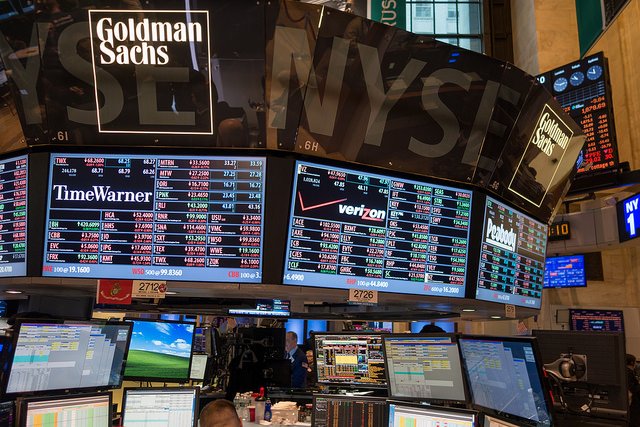
Sadly, it’s not easy to measure sustainable leadership. When you look at the stock market and returns on investments, there’s not much on the “softer” side of business. Wall Street tends to focus on the hard financial facts, not on environmental and social impact.
On the bright side, this study highlights that CEOs with longer tenure showed both success on “innovation, workplace, governance, citizenship, leadership” measurements of sustainable leadership, and financial performance. This means sustainable leaders are sticking around. But global citizens still need to keep an eye out for sustainable leaders and promote this type of leadership across the private sector.
Check out this article on how you can buy from companies led by sustainable leaders, because, at the end of the day, your wallet is an influential social instrument.
5. Longer terms lead to higher quality leadership (for a while)

The average tenure for a CEO is about 9.7 years. The longer a tenure term (in addition to quality sustainable leadership) the better. The best CEOs and companies for sustainable leaders have terms of 27-35 years! That’s two or three times longer than the average.
This really comes down to job security. The study shows that when CEOs feel comfortable in their role, they’re more likely to take on issues broader than profit.
Why? Mostly because there’s so much competition in the corporate world, so new CEOs feel pressure to prioritize profits and revenue at the expense of other variables.When CEOs prove indispensable to their company, then they can take a step back and focus on doing good.
Plus, CEOs with longer tenures have the experience, mental capacity, courage, and confidence to think past the short term, and are more likely to adopt sustainable leadership practices and put them to use in decision making.
However, this is all good and true up until a certain point. This study found that a long tenure may have a turning point that can impede sustainable leadership, and with terms that are too long, CEOs may negatively influence sustainable leadership in a company. So it’s a little tricky to find the perfect time, but adopting policies for sustainable leadership overall is a great place to start.
6. Traveling and adversity creates sustainable leaders

In order to achieve the global goals and end poverty by 2030, there are a few key characteristics that sustainable leaders should posses. Open-mindedness, integrity and continuous education and learning are essential.
Where do these characteristics come from? A lot of the time, from traveling, understanding both developing and developed markets and overcoming adversity.
It’s called relationship building, and it means understanding people across cultures and throughout the planet. CEOs who come from a diverse background, have experience and knowledge of cultures in developing countries and markets and are more likely to adopt social and environmental practices in leadership that will benefit economies in developing countries.
Living internationally, working with people in foreign languages from different backgrounds and cultures all contribute to making better leaders in the corporate world. Human Resources departments and board members need to value these types of life experiences during interviews along with ethics, morality, and personal development goals according to the study.
Creating incentives for corporations to take climate action (Global Goal 13), or any of the other Global Goals is a challenge. But, if CEOs have experiences in life that tie them emotionally and make them feel an ethical responsibility to better the planet, there’s a much greater chance the world will end poverty by 2030.
7. Education makes a big difference

Education also plays a large role in creating leaders who care about society, the environment, are willing to do something and incorporate good governance into business.
Sustainable leadership is a complex topic, and actually putting sustainable leadership into practice is more complicated. Therefore, the higher level of education (and diversity in background) that CEOs have, the stronger their ability to execute sustainable leadership.
Diverse and high-level education also helps CEOs see the bigger picture, which is part of promoting sustainable growth for companies, and ensuring the Global Goals are achieved.
8. Sustainable leadership takes courage
Courage is essential to sustainable leadership. Why? Because it’s not easy to stand up to people investing millions in your company. As a CEO you can’t just pander to shareholders and be concerned about profit if you want to keep a company thriving. One man knows this better than anyone.
Spotlight moment—Paul Polman, Unilever:
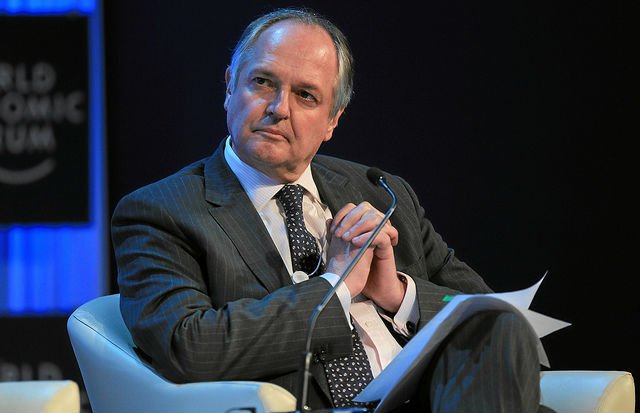
Polman is truly a champion advocate for sustainable leadership. He’s supported the need for integration within companies to support the shift to sustainable leadership for years, and is adamant that “CEOs cannot be slaves to shareholders.” Polman told shareholders in Unilever they would no longer issue quarterly profit reports and Unilever would be adopting a long-term value model for business. Harvard Business Review called Polman “captain planet.” Here’s why—Polman redesigned Unilever’s business model to actually contribute to society and the environment instead of hurting them.
9. Synergy—everyone needs to be onboard (especially “the” board)

CEOs, CSOs, CFOs, and COOs, CMO, CPO, board members—it takes a lot of people to run a corporation of any size, especially the big ones. And it’s so important for everyone to be on the same page. Sustainability should be fully integrated into the way a company does do business. According to one of the authors of the study, Pieter Ligthart, “the CEO is ultimately the Chief Sustainability Officer. Sustainability is not just a sub-department of Corporate Communications, though transparent communication is an important element when driving sustainability.”
Everyone at a company needs to work together to make sustainable leadership an essential model, which is valued by corporations across the globe. Although Unilever’s CEO was able to stand up to investors and the board of directors, not every CEO may feel powerful enough to do so. That’s why sustainable leadership has to be prioritized by everyone!
10. CEOs are working on it
Like I said before, sustainable leadership is still kind of rare, so it’s hard to find inspiring examples aside from Paul Polman. However, here are some examples of CEOs who are adopting some aspects of sustainable leadership.
Yvon Chouinard, Patagonia

The founder of Patagonia tells consumers not to buy his products to promote sustainability in retail and encourages employees to go surfing. It’s no wonder Patagonia is continuously voted one of the best companies both to work for an most sustainable year after year.
Andrew Witty, GlaxoSmithKline (GSK)
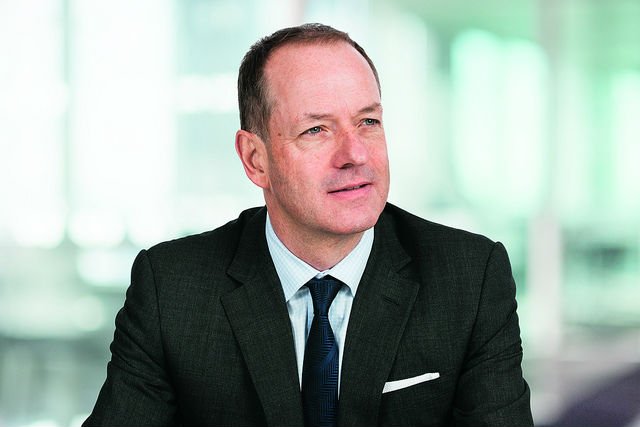
Andrew Witty looks like a classic CEO, and yes, Witty is the CEO of the major pharmaceutical company GSK, headquartered in the UK. But he’s not your average CEO. He’s prescribing a new medicine for CEOs in the pharma world to become sustainable leaders.
Witty is responsible for GSK’s decision to no longer pay doctors to prescribe medicine, and pays sales reps based on technical knowledge and quality of service instead of quantity sold. One more thing—the company is expanding business in India, and Witty advocates the way to do this is through making medicine affordable. That’s quite a sustainable change!
Elizabeth Holmes, Theranos
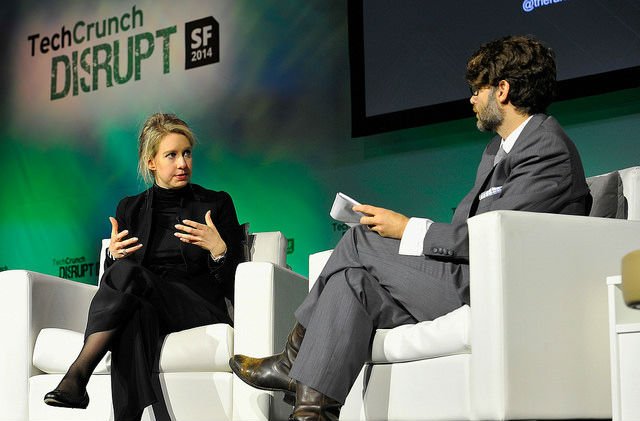
Holmes is one badass CEO—in the best way possible. She founded her own blood test company called Theranos at the age of 19 while still a chemical engineering major at Stanford. She supports gender equality and gets women to help each other. Talk about a sustainable leadership role model. Plus, she also looks like a model. I hope she’s taken part in the #ilooklikeanengineer trend going around.
Mark Zuckerberg, Facebook
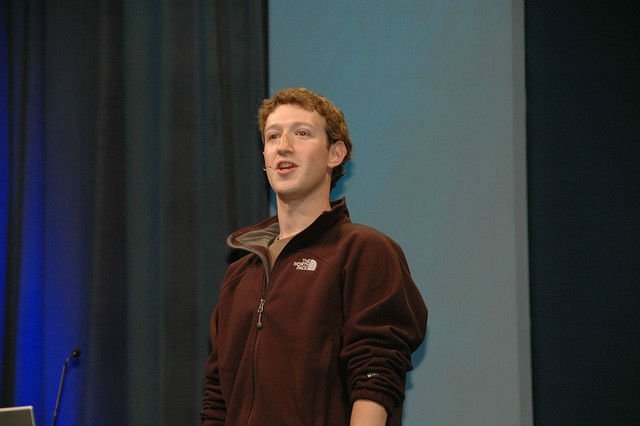
Zuckerberg may not be known as the warmest and fuzziest of bosses, but there’s a few aspects of sustainable leadership that Zuckerberg employs. He is one of few CEOs of multibillion-dollar corporations with a “relatively” low salary of $600,000. He has interesting future plans for Facebook that incorporate sustainable global development. For example, committing to make sure everyone on the planet has internet in ten years. Plus he can keep a company interesting for both my grandma and I...which is kind of impressive.
Are they moving fast enough? Not at all, but at least they’re trying.
Please share your thoughts on sustainable leadership, and feel free to recommend more examples of people you think are sustainable leaders in business in the comments below.